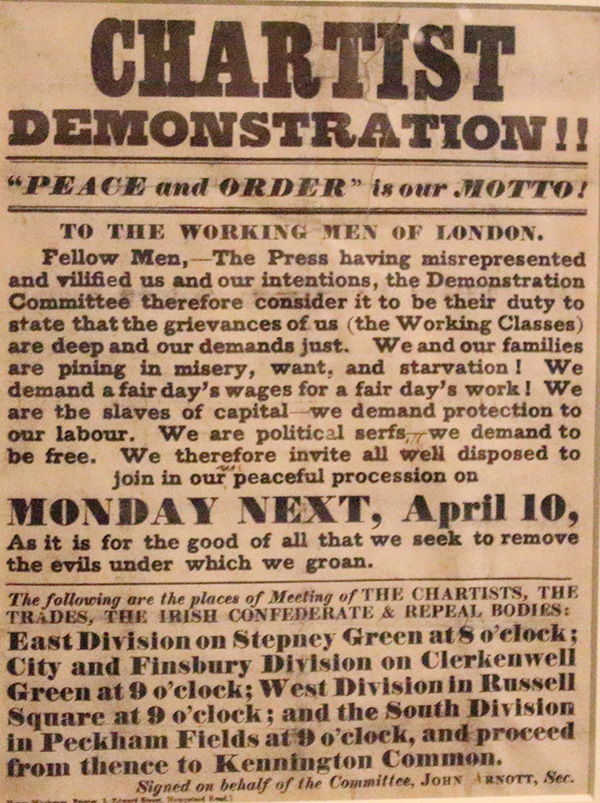
The eloquence of the Chartists terrified the UK government. In a word, it was charisma. According to historian Miles Taylor, what troubled people about the Chartists was that they were led by a bunch of charmers: speakers who could get their working-class audiences so worked up, they would have no control over their behaviour.
William Cuffay, an articulate Black tailor born in Chatham, became a prominent Chartist in London. For Cuffay, charm on its own wasn’t enough. It would be necessary to use, at least, the threat of some form of physical force. On 9 April 1848, he is reported as saying: ‘This clapping of hands is all very fine, but will you fight for it?’ At his trial later that year, he denied plotting to overthrow the UK government.
The Treason Felony Act 1848 (TFA 1848) was passed to silence the Chartists. It was debated by Parliament at the same time as the








